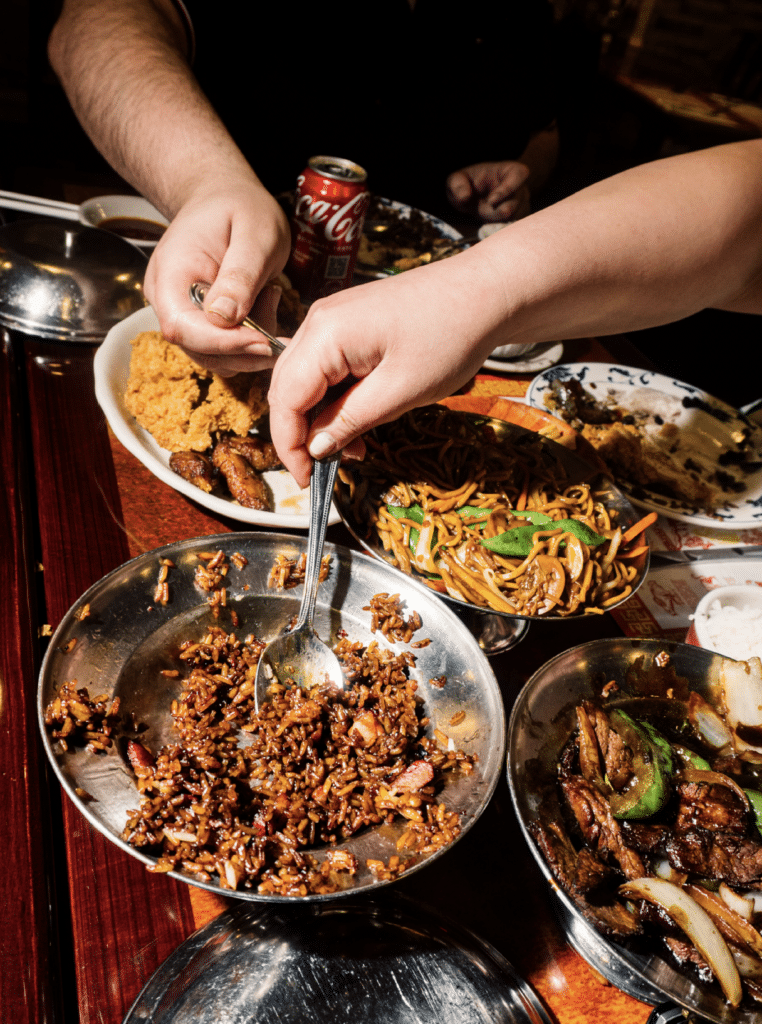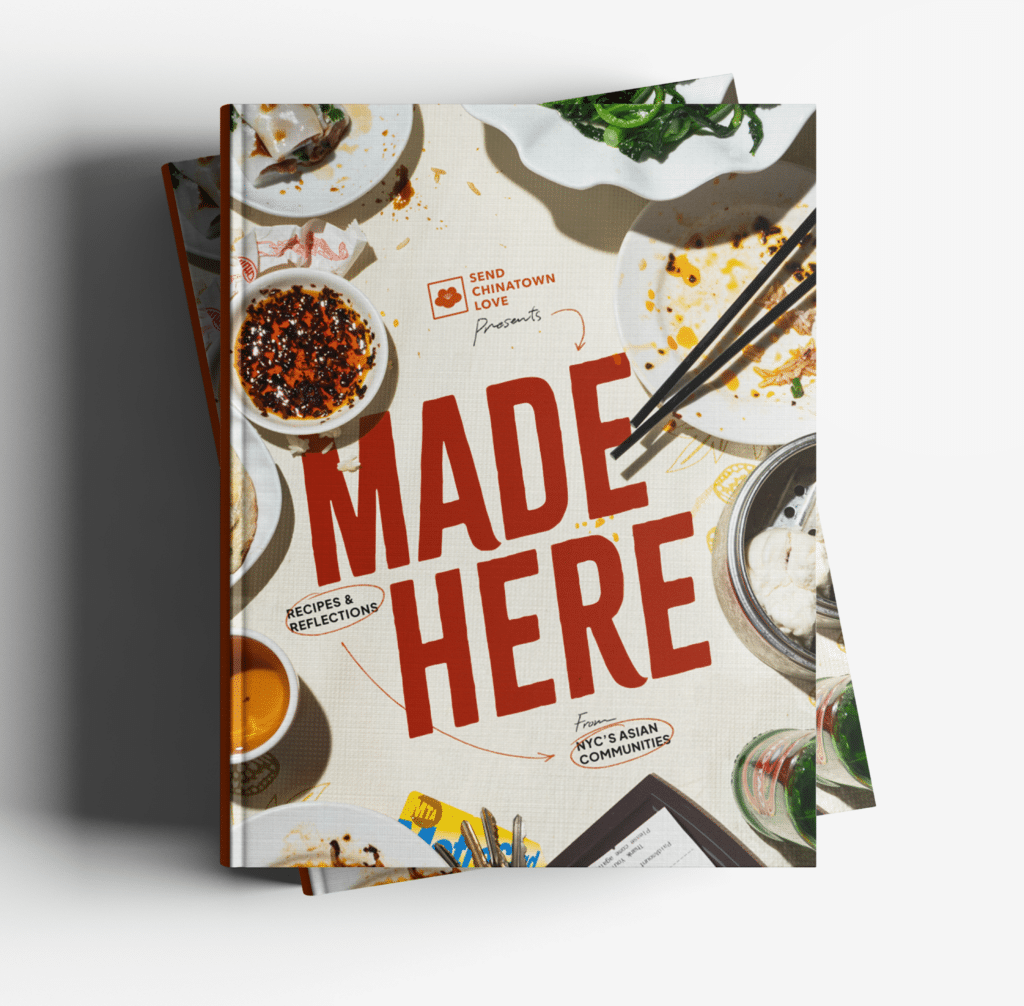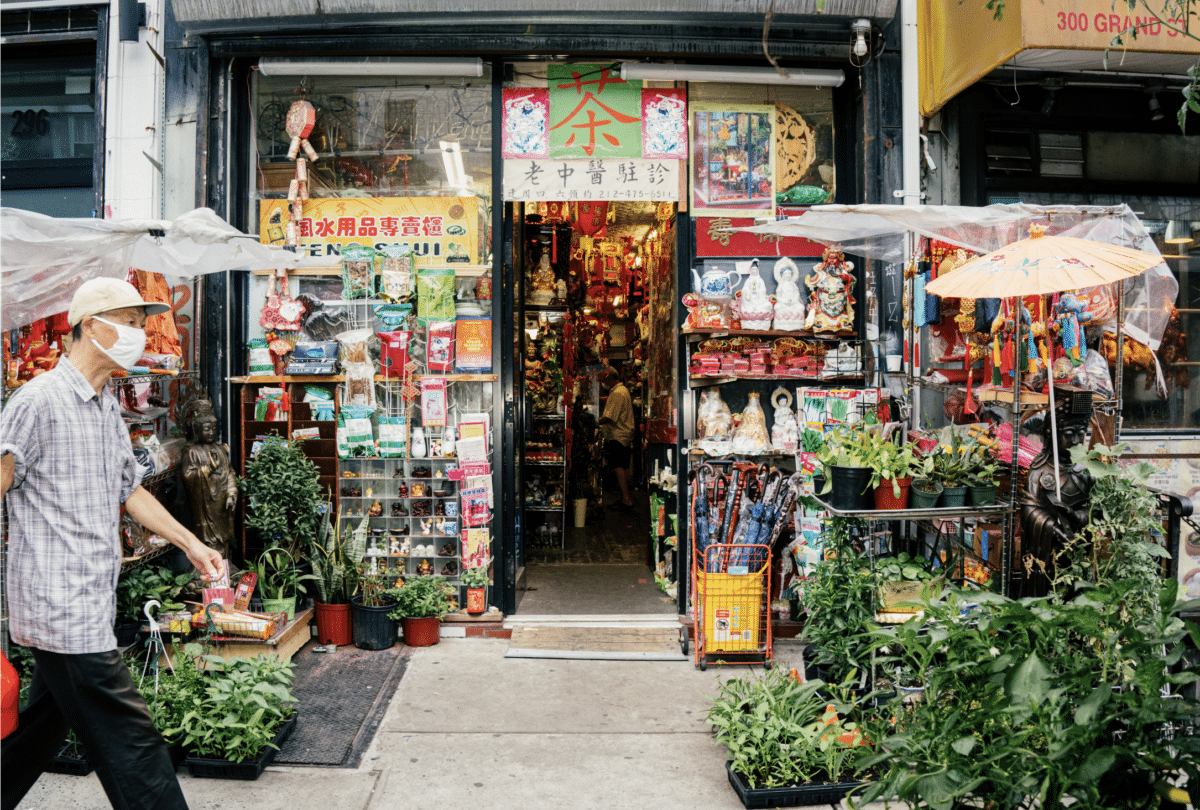Over the past few years, as the most grueling moments of the pandemic have waned, needs from the Chinatown community have changed, but Send Chinatown Love’s main throughline has been to support merchants with business and publicity.
Send Chinatown Love is a team entirely comprised of volunteers.
Founded in March 2020, it was created by engineers, students, designers, and storytellers from various industries to support the immigrant-run mom-and-pops of New York City’s Chinatowns through COVID-19.

Two months before New York City shuttered in response to the emergence of COVID-19, in March 2020, the city’s Chinatowns were already feeling the effects: foot traffic was significantly down, and streets and dining rooms were empty of the bustling crowds that used to pack restaurants for dim sum, roast duck and wonton noodles.
Tourism was down, understandably, but anti-Asian sentiments linked to this novel virus had also begun gaining a foothold. With a headstart on business struggles, Manhattan’s Chinatown suffered a triple jeopardy: a lot of businesses were cash-only (meaning no digital presence) and Chinatown’s location is such that it shares zip codes with wealthier neighborhoods such as Soho, rendering many restaurants ineligible for pandemic loans and grants. There were a plethora of other issues—document translation, paperwork bureaucracy, an older workforce, reliance on in-person patronage—that made the uphill battle for Chinatown’s merchants an ever-growing one.
Almost immediately, however, Chinatown’s younger generation observed these hurdles and stepped up in ingenious ways to save what many saw as their second home. Send Chinatown Love, founded in March 2020 by Justin McKibben, was one of the earliest. Recognizing that so many of Chinatown’s cash-based, low-tech business couldn’t take advantage of the delivery and donation systems other restaurants in the city were relying on, he solicited help on social media and teamed up with other Asian Americans who wanted to volunteer their time.
The idea was seemingly simple:
Reach out to businesses and offer to build a donation or gift card portal where the business would receive all the proceeds, cash-in-hand. What the team didn’t anticipate was the skepticism that comes from cross-generational problem-solving. Volunteers made cold calls or even in-person visits when possible, pitching their free services, but many merchants were hesitant: Who were these people? Was going digital really the answer? How much would it actually help?
Unknown content block type: FlexiblePageTemplateFlexibleContentPhotoFullWidthLayout
{
"__typename": "FlexiblePageTemplateFlexibleContentPhotoFullWidthLayout"
}It was the first sign that the hardest part of the project would not actually be fundraising, tech setup, or volunteer commitment; it would be building community trust. As the team made more inroads, gathered experience and set themselves up to prioritize relationship building, word began to spread and more merchants were assured of Send Chinatown Love’s reliability. As the city slowly opened up and food orders began trickling in again, the organization expanded its merchant support to encourage long-term resilience, providing business development services such as website creation, menu redesigns, inventory counts, and whatever else a merchant voiced they needed assistance with, especially as many were coping with a smaller staff.
Another development in the city’s restaurant scene, outdoor dining, was inaccessible to Chinatown establishments where streets are narrow and busy, with many sidewalks wide enough for only one or two people. In addition, anti-Asian hate and violence was on the rise, and both locals and staff were often wary of being out after dark, or commuting home at night alone. Send Chinatown Love realized the importance of neighborhood beautification and raised nearly $50,000 to install lanterns along Mott, Bayard and Pell Streets, imbuing the areas with light and creating a visually delightful attraction. Volunteers also worked with local organizations to set up, raise funds for and decorate outdoor dining structures wherever they could be placed.
Over the past few years, as the most grueling effects of the pandemic have waned, needs from the Chinatown community have changed, but Send Chinatown Love continues to support merchants with business and publicity. Its flagship program, Gift-A-Meal, sources several hundred meals from participating restaurants with funds raised by the non-profit. It then distributes the meals free of charge to Asian elders in the community in partnership with local organizations. Gift-A-Meal has a double impact; it ensures restaurants receive a profitable, large order to sustain business, and it provides food insecure Asians with culturally appropriate meals and groceries. Because most Asian produce and ingredients are not readily available at most supermarkets in the city, this was enormously appreciated in a community where almost a quarter of people are living in poverty.
Unknown content block type: FlexiblePageTemplateFlexibleContentPhotoFullWidthLayout
{
"__typename": "FlexiblePageTemplateFlexibleContentPhotoFullWidthLayout"
}Send Chinatown Love continues to prioritize its merchants’ profitable survival in other ways too. It has organized food crawls and scavenger hunts to encourage foot traffic to Chinatown businesses, especially in Flushing and Brooklyn Chinatowns. It has been featured in several mini-documentaries that highlight the hard-working people and stories behind its partnering restaurants. One of these recently won a New York Emmy.

This celebration of each individual business is what inspired the idea behind Send Chinatown Love’s recently published cookbook, Made Here: Recipes & Reflections Behind NYC’s Asian Communities. Almost more book than cook, volunteers conducted interviews with restaurant owners, wrote their stories in detail, photographed their delicious meals and recipe-tested iconic dishes. Many of the more “famous” or social media friendly businesses in Chinatown already had press, but the goal was to highlight that every single merchant had a journey and story worth telling, whether a chef behind a stall in a mall’s food court or a business owner of a restaurant outside Chinatown’s border.![]()

Your purchase of the wonderful cookbook supports the community:
Made Here: Recipes & Reflections Behind NYC’s Asian Communities.
The mission of Send Chinatown Love is to support the immigrant, Asian-owned businesses of NYC by providing customized services and resources to help them thrive.
